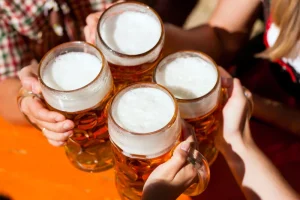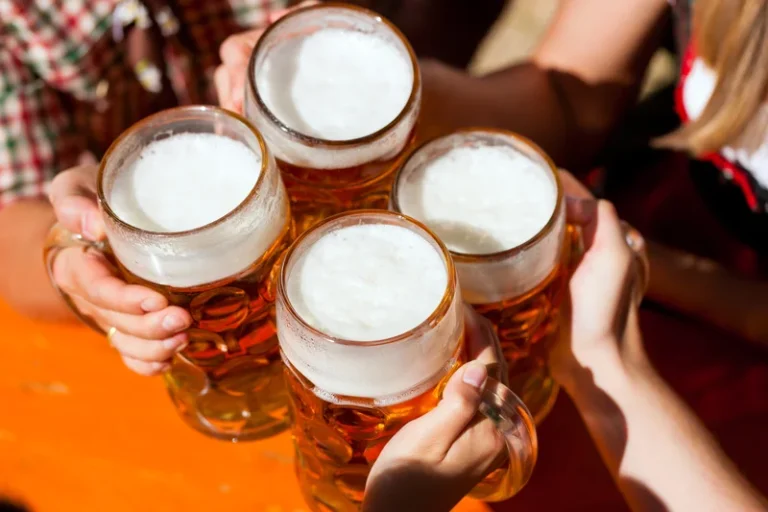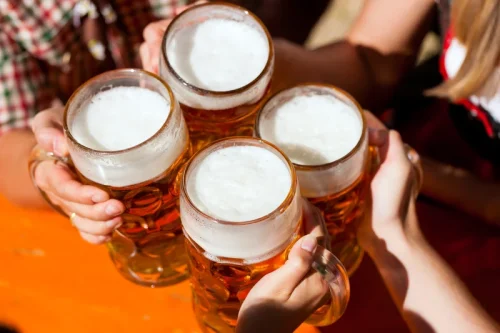
Your goal should be to detach yourself from the trigger, recenter, and focus on your coping strategy. Whether trigger warnings are helpful or harmful is a subject of debate. Some use trigger warnings to give students time to physically or mentally prepare for potentially distressing subject matter, such as physical or sexual violence. Trigger warnings are used in other settings, too, such as in the media. Feeling triggered isn’t just about something rubbing you the wrong way.
Nurture a Sober Support Network
We publish material that is researched, cited, edited and reviewed by licensed medical professionals. The information we provide is not intended to be a substitute for external trigger examples professional medical advice, diagnosis or treatment. It should not be used in place of the advice of your physician or other qualified healthcare providers.
Normal Feelings Trigger Relapse
People at risk of a relapse should avoid stressful situations that are likely to push them to use drugs and alcohol. Friends and family may not understand the consequences of negative behaviors toward people in recovery. These behaviors can make the individuals feel alienated and push them toward substance use. External triggers involve conditions or environments that can prompt substance use. They are external factors or situations that remind one of past behaviors. While it can be difficult to control triggers, those who experience them can learn from past experiences, apply what they learn, and limit the risk of being re-triggered.

Internal Addiction Triggers

Whether your triggers are emotional distress or a specific situation, it is essential that you know what compels you to use when trying to lead a life of sobriety. Understanding what triggers you to relapse and having a plan in place for these triggers are your first steps toward prevention. Triggers that happen outside of the individual are not necessarily beyond control. There are multiple reminders of substance use in a former drug user’s life, including people, places and things.
- In early recovery, boredom and social isolation can be powerful triggers for relapse.
- It is helpful to get in touch with people who can offer you support and encouragement as you confront and manage these thoughts and emotions.
- Some might even be traumatizing enough to provoke harmful coping mechanisms, including self-harm, harming others, and substance abuse as well.
- External triggers, on the other hand, stem from environmental factors.
- People at risk of a relapse should avoid stressful situations that are likely to push them to use drugs and alcohol.
Intrusive thoughts or other undesirable thought patterns are often the cause of relapse, particularly among those with diagnosed mental illnesses. Addiction is often the result of those with mental illness self-medicating to reduce the severity or frequency of the symptoms of that mental illness. If this is a medical emergency or there is immediate danger of harm, call 911 or visit a hospital emergency department and explain that you need support for a mental health crisis. Overconfidence in recovery can be dangerous, as it can lead to a false sense of security, making you more likely to take risks and eventually relapse. It’s important to remain conscious of the fact that addiction is a chronic illness, and relapse is always a possibility. Additionally, setting boundaries in relationships can help protect against overwhelming emotions that could lead to a relapse.
- However, if avoidance hinders your ability to function, you should seek help.
- Your response to these events can vary based on your frame of mind and the circumstances surrounding the situation.
- However, using drugs or alcohol again can have serious consequences, and it can even be fatal.
- Some people may believe that those who need trigger warnings are weak or incapable of handling stress.
When triggered, the brain might interpret past traumatic events as current. This causes the body to experience symptoms as it did in response to the original trauma (such as the fight-or-flight response). One of the cornerstones of treatment options for addiction recovery is education about triggers and healthy ways to cope with them. Learning healthy ways to cope with triggers is one of the ways that an individual can make their recovery able to last many years. Sometimes memories that we perceive to be happy are deeply intertwined with addictions or past addictive behaviors, which can lead to reminiscing about one-time use.
How to Create a Successful Relapse Prevention Plan
Some people cope with stressful events more easily than others; consider the impact such events might have on people with mental illnesses. Triggers refer to the experience of having an emotional reaction to drug addiction a disturbing topic (such as violence or the mention of suicide) in the media or a social setting. However, there is a difference between being triggered and being uncomfortable. Stephanie Robilio is an accomplished Clinical Director at Agape Behavioral Healthcare. With a Master of Social Work degree, LCSW license, and extensive training in Rapid Resolution Therapy under her belt, she brings a wealth of expertise to her role.
Talk to a professional
They may offer a person in recovery alcohol, thinking that it won’t do them any harm or get in the way of their treatment. The first step on the road to overcoming triggers in recovery is identifying them. By recognizing the specific situations, emotions, or people that may lead you towards substance use, you can develop a personalized relapse prevention plan. Understanding your triggers strengthens your ability to take proactive steps when faced with challenging situations and reinforces your commitment to sobriety.


After experiencing a trigger, a person may have big, negative feelings – overwhelm, powerlessness, fear, etc. These feelings can be detrimental to mental health and are often a challenge to effectively address after they arise. Understanding the difference between external and internalized triggers is a crucial step in managing your emotional health. By recognizing and addressing these triggers, you can improve your ability to live in the present and create a more balanced life.
Internal triggers act in reverse, associating these signals to the substances that elicit them. The research maintained that subconscious cues are dangerous because they reinforce the patient’s desire to restart using drugs without them being aware of it. Researchers highlighted the importance of avoiding the people, places and things that remind patients of their former lifestyle. Trial and error can help each person determine what works best for them. Remember that different coping strategies may work for different triggers and emotions. For some, a trigger might cause a physical response – heavy breathing, sweating, crying.
